UW-PARKSIDE'S
INNOVATION
EVOLUTION
The idea of innovation is as old as change itself. Innovation by very definition is about making changes, more often than not changing something that’s very well established through the introduction of new methods, ideas, or products.
The good news is that our UW-Parkside community has embraced innovation and the changes driving innovation in society since our very foundation. Two major goals for UW-Parkside when it was created in 1968 were to assist area business and industry with innovation and technology, and to provide the region with ready and relevant talent by making higher education more accessible to all.
Over the years, thousands of UW-Parkside students, faculty and staff – working in the Ralph Jaeschke Solutions for Economic Growth Center, the App Factory and GIS Factory, and the Cyber Security Lab, to name a few – have assisted businesses and organizations throughout the community developing news ideas and providing new perspectives.
Today, we’ve merged those strategies with our goals to significantly increase the number of graduates in the next five years and expand our efforts regarding diversity, equity, and inclusion. Our region is diverse and growing, and that means the need is also growing for innovative, relevant, and entrepreneurial talent that is truly representative of southeast Wisconsin and beyond.
Read on to learn about the people, ideas, and spaces that are part of UW-Parkside’s innovation environment today.
Center for Research in Innovation and Smart Cities
MEET DR. GEORGE VUKOTICH
A magazine issue with the theme of innovation at UW-Parkside must mention the university’s new Center for Research in Innovation and Smart Cities. And you can’t mention the Center without first talking about George Vukotich.
Vukotich is the Center’s founding director and comes to UW-Parkside with an array of experience from corporate, consulting, military, startup, and educational environments to develop and implement process improvement and major organizational change.
Vukotich brings knowledge from many sectors to campus, and with his team has already begun to build a strategic plan that includes the cities of Kenosha and Racine in their initial efforts.
“We need to bring individuals together to leverage the power of people working with technology to make our communities better,” says Vukotich. “That process starts with bringing individuals together to create awareness, leveraging our educational resources, and driving innovation through collaboration.”
As more people move to cities, there is greater pressure on those cities to work more effectively. “That’s where the concept of ‘Smart Cities’ comes in,” says Vukotich. “The goal is to look at how to help cities work more effectively in a number of areas, including providing better career opportunities for their populations, effective movement of traffic, better usage of energy, better protection of our natural resources like clean air and water, and providing internet access, to name a few.”
UW-Parkside’s Smart Cities graduate certificate and master’s degree concentration help students develop knowledge on Smart Cities concepts. The Center will expand on these educational offerings by leveraging the many innovation initiatives on campus, and bringing together more resources to support startups and Smart Cities development.
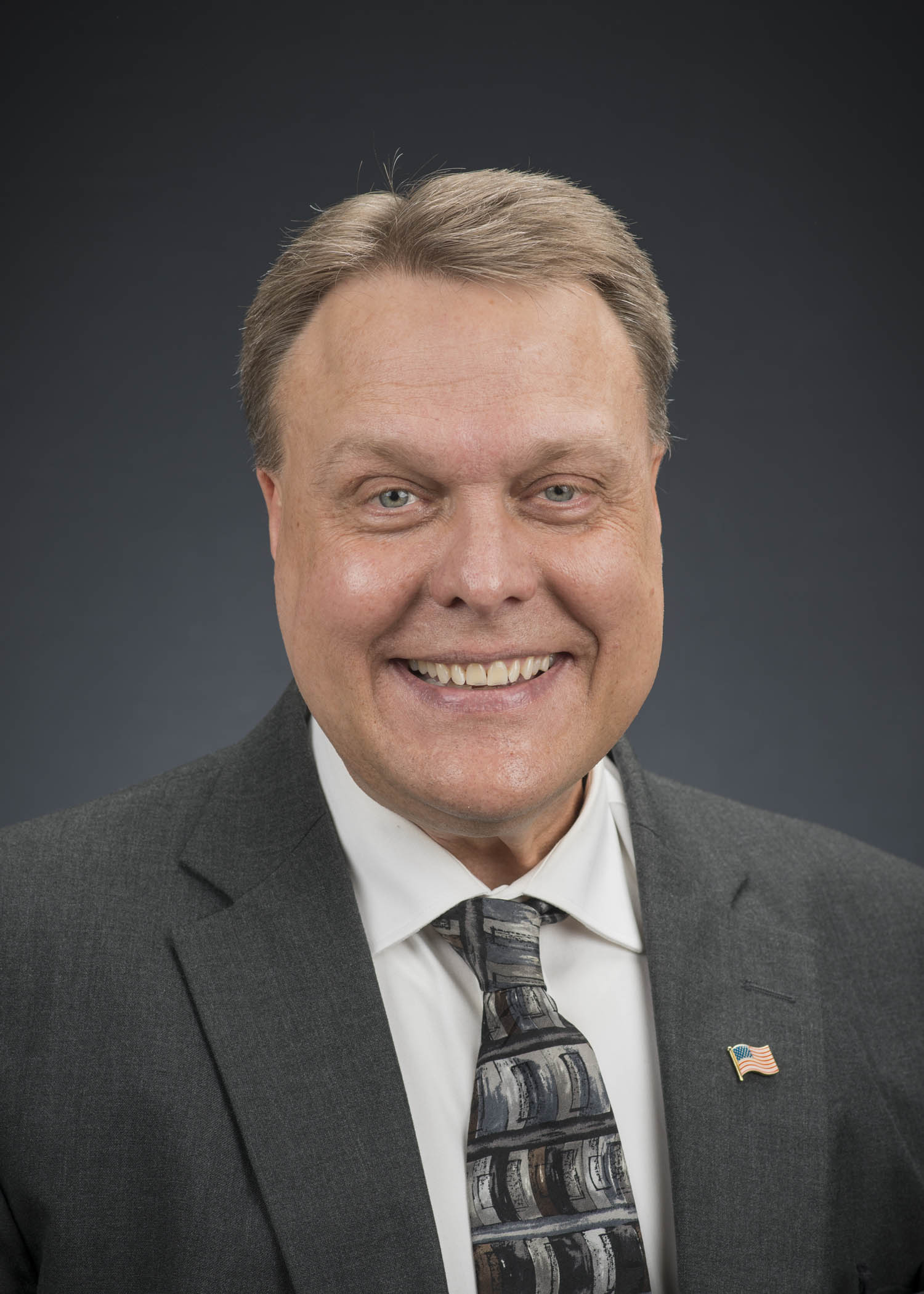
If you would like to be directly involved in creating the future, reach out to George Vukotich, at vukotich@uwp.edu
What will the Center for Research in Innovation and Smart Cities do?
- Convene leaders from faculty, higher education, business, healthcare, government, and civic groups to develop a research and training agenda for the center.
- Create research opportunities for faculty and students, develop teaching and training initiatives, establish visiting scholar and speaker programs, and link to smart cities professional networks.
- Encourage innovation through basic and applied research.
- Expand academic programs in areas needed in the Wisconsin workforce.
- Expand connections with employers to better respond to workforce needs.
- Provide professional development opportunities to promote creativity and innovation within the university and in the broader community.
Stay connected and follow the Center’s progress on LinkedIn.
FACTORY MADE
Parkside hosts two cutting-edge innovation incubators
The GIS Factory provides opportunities for students to work with real-world clients on innovative projects that require mapping and spatial analysis.
Geographic Information Systems (GIS) are critical in our digital world in a wide variety of applications such as transportation planning, business logistics, environmental analysis, and natural disaster research. The lab houses 30 dual monitor PC’s running ESRI GIS software, and has an interactive smart board and two ceiling mounted screen displays. The Factory has also opened up new lab space and expanded out to the field with two Juniper Geode GPS units with smartphones and portable WiFi for data collection and a Phantom 4 Pro v2 Mapping drone.
Students not only practice and improve their GIS knowledge; they also learn valuable professional skills such as meeting deadlines, accommodating client needs in efficient and cost savings approaches, project time and cost estimation.
GIS Factory Director and Associate Professor of Geography and Anthropology John Ward said that recent GIS Factory projects have involved the Root River Council, the UW-Parkside Athletic Department, and community clients like the Uptown-Brass Neighborhood and the Brass Community School (Kenosha).
“We can do pro bono projects for clients depending on the project goals, learning opportunities for students, and the client’s financial situation,” said Ward.
In UW-Parkside’s App Factory, graduate and undergraduate students, and faculty from computer science, business, art, and other disciplines collaborate to create mobile apps for clients in southeastern Wisconsin in a startup company environment.
The App Factory started in 2015 as a way to support projects that had been developed in courses in business, computer science, and other fields, that had longer-term objectives or needs than what could be completed in a single semester. The first project was creating a mobile mass transit app that eventually was adopted by four communities, including Racine and Kenosha.
Today the App Factory has expanded far beyond its early beginnings. Projects have involved a variety of different organizations, from non-profit to private-sector manufacturing companies, and final products have included a Kenosha Farmers Market app, a Racine Zoo app, a Frank Lloyd Wright Trail app sponsored by SC Johnson, and of course our own UW-Parkside app.
App Factory Director and UW-Parkside Computer Science Professor Zaid Altahat said prior to the pandemic, the Factory hired 40 students as interns. He expects that post-pandemic, App Factory student engagement will return to this level as the student demand continues for hands-on experiences that give students skills to succeed beyond their academic careers.
“The App Factory is an excellent opportunity for students to work on real-life projects with deadlines and budgets. Nothing substitutes for working on client issues and solving real-world problems,” said Altahat. “It’s run and managed as a small software company. Students have been hired based on their experience, knowledge and tools they developed at the App Factory.”
PARKSIDES INNOVATION HOTSPOTS
More innovation spaces and opportunities on campus

UW-Parkside Sales Center
The Sales Center provides a home to support sales education, career development and research. Qualified and experienced faculty with the active participation of the Sales Center Advisory Board, comprised of industry professionals and National Sales Competition Champions, strive to provide a world class sales education for UW-Parkside students.

The Big Idea Innovation Challenge
The Big Idea Innovation Challenge provides competitive funding opportunities for UW-Parkside students to develop innovative ideas and start-up initiatives. This funding opportunity provides students with funds and expertise needed to successfully take ideas from “spark” to “seed,” as they prepare to seek support from competitive funding sources statewide. One winner of the challenge is selected to enter the Wisconsin Big Idea Tournament each year.

Ralph Jaeschke Solutions for Economic Growth (SEG) Center
The SEG Center brings together local community businesses with students and faculty to create project-based learning opportunities that solve real-world business needs.

Institute of Professional Educational Development
UW-Parkside’s teacher education program, completely redesigned and relaunched in 2014, pairs future educators with current educators through a unique co-teaching model. The program prepares effective educators who understand the challenges of today’s classrooms and are able to work toward making the most of tomorrow’s opportunities.

Smart City Policy and Civic Partnerships Online Graduate Certificate
The Smart City certificate program explores business models, technology and best practices for turning a smart city plan into reality. Students develop a practical understanding for strategic and operational facets of smart and sustainable cities.

Wisconsin Small Business Development Center (SBDC) at UW-Parkside
The SBDC provides education, training, and complimentary one-on-one counseling to entrepreneurs and business owners throughout southeastern Wisconsin.

Digital Design and Fabrication Lab and Certificate
Students learn how to design and make structures using computer-aided software, 3D printers, and state-of-the-art CNC machinery, helping them become fluent in the use of these tools as a creative, artist, technician, and entrepreneur. Intentionally created to align art and industry, the certificate offers the opportunity to train for a digitally complex world.

Cyber Security Lab and Certificate
The first computer science certificate offered by an accredited four-year Wisconsin university that meets the National Security Systems National Training standards. Students gain practical, hands-on knowledge and attain the necessary background to secure computers, servers, and the networks that connect them.
FACULTY LEADING INNOVATION
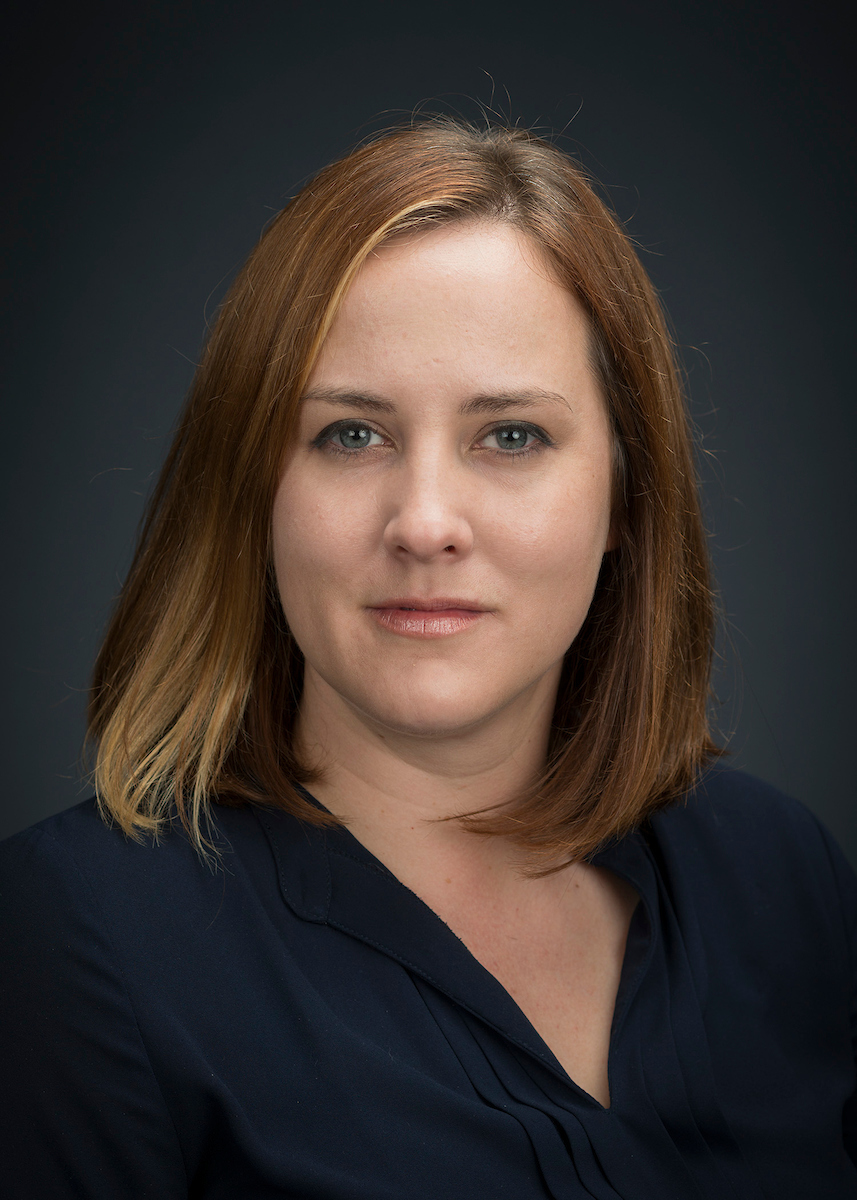
DR. FRANNIE MANN
WiSys 2020 Innovator of the Year & 2021 Regent Scholar Winner
If you’re looking for innovation at the classroom and research level, you don’t have to look any farther than UW-Parkside’s Dr. Francis “Frannie” Mann.
Mann, an associate professor of chemistry and co-chair of the chemistry department, was the WiSys 2020 Carl E. Gulbrandsen Innovator of the Year and one of UW System’s 2021 Regent Scholar recipients.
WiSys is a nonprofit organization that works with faculty, staff, students, and alumni of the UW System, and plays an important role in facilitating cutting-edge research programs, developing and commercializing discoveries, and fostering a spirit of innovative and entrepreneurial thinking across the state. In 2020, WiSys universities were second in the Bush Institute-SMU Economic Growth Initiative’s national Innovation Impact Productivity Rankings for smaller research universities.
The awards confirm what many already know – Dr. Mann has been an active member in building a culture of innovation at UW-Parkside and throughout the UW System. In announcing her WiSys award, Chancellor Ford noted that Dr. Mann “serves as an outstanding educator, scholar and innovator while engaging students in her work. “We are fortunate to have Dr. Mann and her innovative spirit in our learning community.”
Mann has submitted several inventions to WiSys in the past few years, leading to four patent applications, including an international filing. Mann has also received grant funding to support her work.
During the 2020-2021 funding cycle, Mann was awarded a competitive WiSys Ignite Grant, which encourages UW System faculty and staff to apply their expertise and scholarship to support economic development in Wisconsin. Mann also received an Ignite Grant in the 2018-2019 funding cycle.
Mann uses these opportunities to engage students in scientific process so they can experience the work that leads to major discovery and innovations firsthand. “My major focus is always first and foremost to provide students with real, meaningful research experiences in the lab. My students are actively involved in development of the research plan, performing the experiments, assembling and interpreting the data, and presenting the outcomes,” Mann said.
“When they are done with a project in my lab, they stand out to area employers and graduate schools because they have become independent scientists who have both laboratory skill and the ability to think on their feet. As long as I can continue to provide those types of experiences, I’m happy.”
Mann on Microbial Metabolism
Mann’s current research focuses on harnessing the power of microbial secondary metabolism. “My lab is interested in the potential for microbes – like bacteria and fungi – to synthesize industrially and medicinally important compounds,” said Dr. Mann. “We recently discovered that one specific bacteria synthesizes a compound that appears to kill other bacteria. This project aims to understand how this compound achieves this bactericidal activity and to evaluate it for future use as an antibiotic.”
Given the current pandemic and the ability of organisms to develop resistance to antibiotics, Dr. Mann’s research could have far-reaching implications. “Microbes are responsible for many human diseases, and we have successfully treated them with antibiotics since the end of World War II,” said Dr. Mann. “Unfortunately, microbes are smart and have evolved to evade these antibiotics. Discovery of new antibiotics is extremely important, but we also need to discover new ways for antibiotics to target the microbes. This project has the potential to provide both.”
DR. DARYL SAUER
For Dr. Daryl Sauer, his career as a UW-Parkside innovation champion started as an undergraduate.
Sauer currently is an assistant professor of Chemistry at Parkside. His most recent research has focused on natural product isolation, microwave accelerated organic synthesis, and flow chemistry and electrochemistry. He is the named inventor on 30 U.S. and international patents as well as the author on 30 peer-reviewed publications.
But the time before his 1984 graduation from UW-Parkside really helped set him on his career journey as an innovator.
“Innovation and undergraduate research helped me in my career,” said Sauer. From my experience, the innovation aspects at Parkside even 30 years ago was beneficial for helping make people’s careers. That continues today, including for many of my students.”
Sauer said in addition to his success a number of people in and around his graduating class moved on to do very innovative things. “Those people that are 30-40 years into their career are still striving to innovate at their respective organizations,” said Sauer.
After graduation Sauer got his PhD in chemistry and worked for a short time at Ohio State University before joining Abbott Laboratories/AbbVie, where he worked for 25 years in several roles, including as a senior manager in Scientific Assessment–Discovery Licensing and Acquisition. “My job was to acquire innovation and new technology,” said Sauer.
Following his retirement from industry, Sauer returned to UW-Parkside to engage in teaching and research with undergraduate students. He has been instrumental in helping develop the Big Idea Innovation Challenge, and several of his chemistry students have won the competition. Like his undergraduate time at Parkside, Sauer thinks innovation outlets like the Big Idea fuel students’ desires to become innovators.
“I think UW-Parkside, for lots of reasons, including the student-faculty ratio and the fact that we don’t have PhD students, gives undergraduates the opportunity to be involved in innovation they might not have in other institutions,” said Sauer.
Previously in PARKSIDE: The Magazine: On the Way to Mars
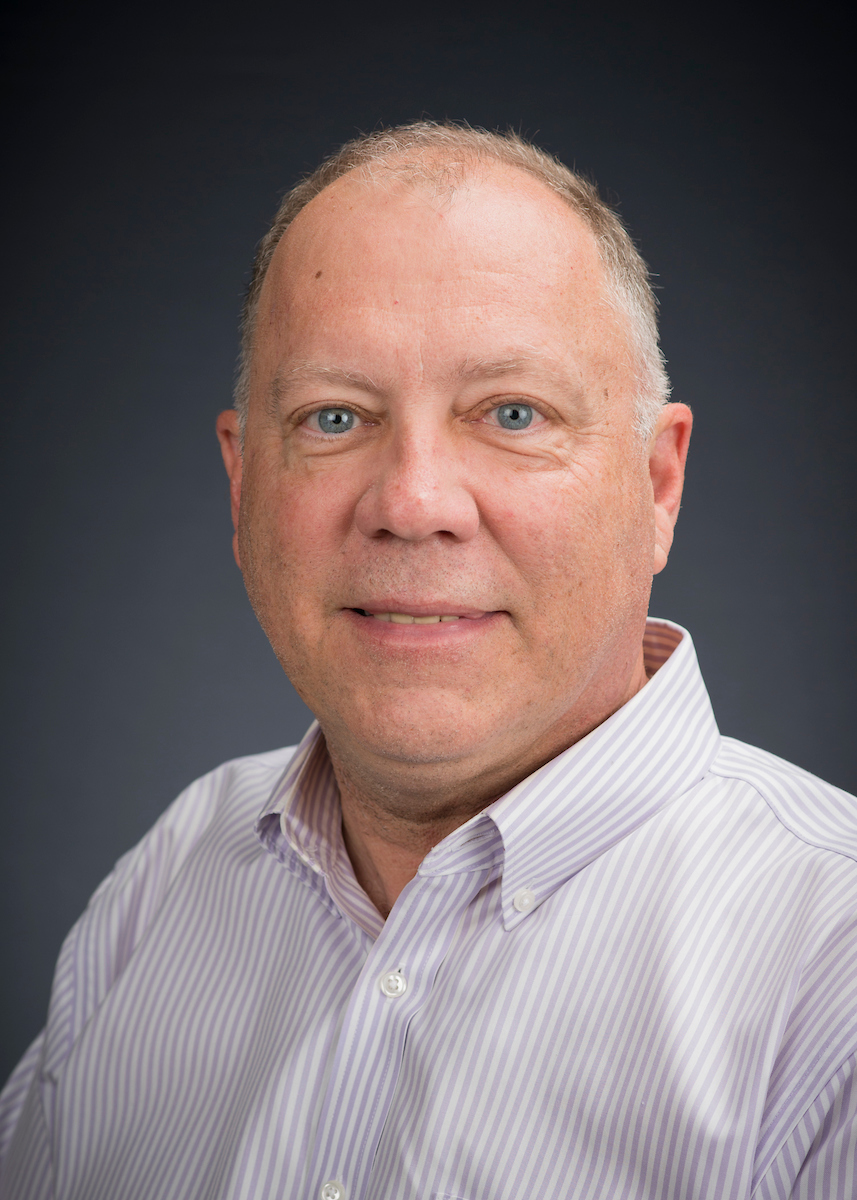
RECENT ALUMNI INNOVATORS
For these former students, innovative thinking is a lifetime pursuit
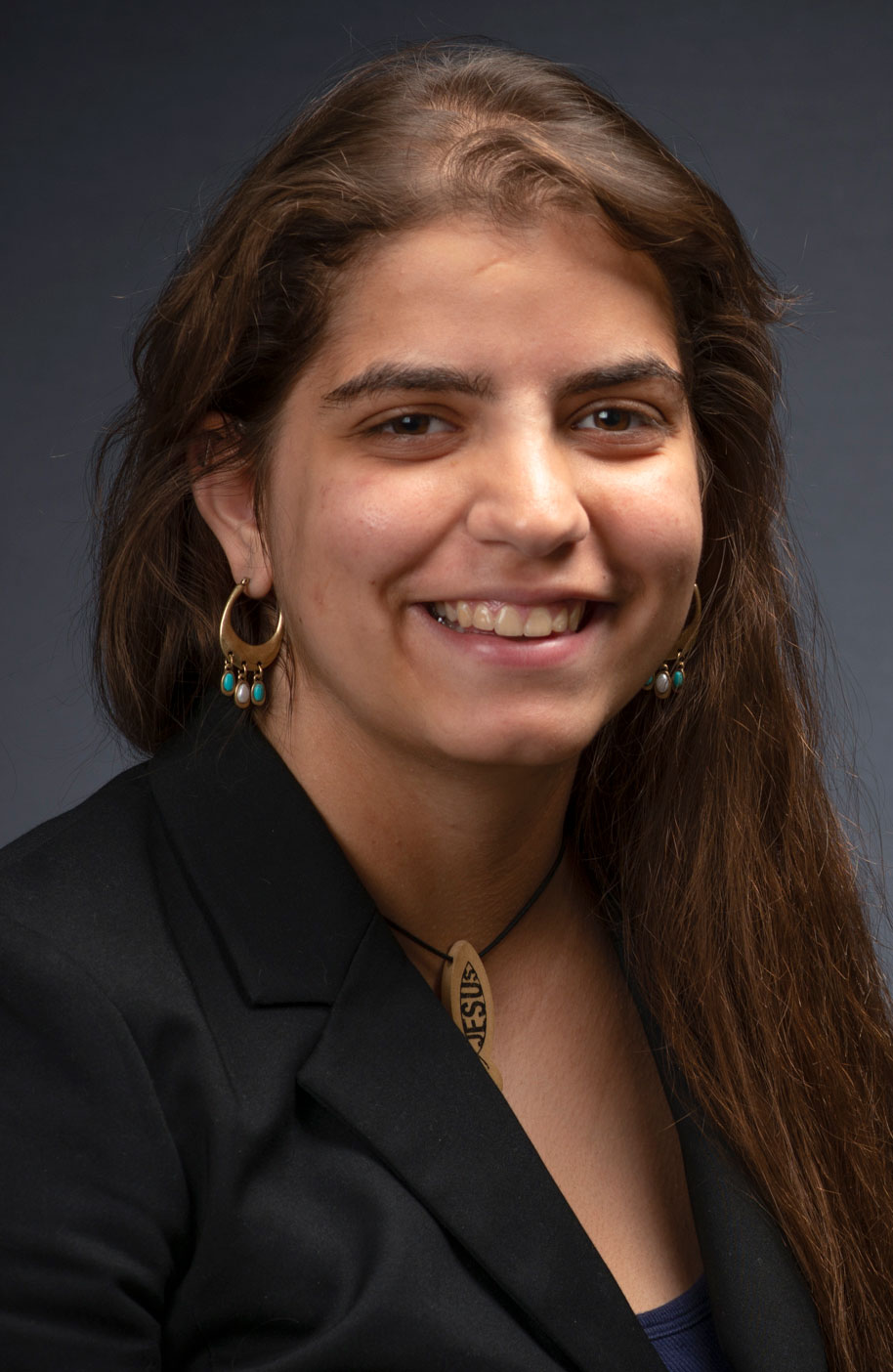
MARIANA NELSON ’20
Innovator on the Move
There are plenty of achievements you can pick out for Mariana Nelson during her stellar career at UW-Parkside – the 2020 Chancellor’s Award recipient and newly minted UW-Parkside alum also worked for the Small Business Development Center, served as a resident advisor in Ranger Hall, tutored students, volunteered at the St. Vincent de Paul retail and donation centers and was an active member of her church community.
Yet it may be her role as an innovator that might set her apart from her other alumni colleagues. Last year Mariana won the Big Idea Innovation Challenge for creating a mobile app designed to review companies based on the level of accessibility they provide to people with disabilities. The app is intended to create a community where people with disabilities can review companies, events, and locations based on accessibility and other factors.
“It’s designed to be a ‘Yelp’ for people with physical disabilities,” said Nelson. “People don’t know what accessibility means. For example, sometimes you might not think a high table is an accessibility problem. So it’s a way for people who have disabilities to look at a location and truly tell if it’s accessible for them.”
Nelson also worked for the App Factory where she was the lead designer for three years. She now works for ATP, a Florida-based company that develops software solutions for the aviation industry. She credits her designer experience at UW-Parkside as a big reason for her success.
“I think all of those opportunities helped me research and grow, as well as interacting with the clients and customers, and obviously knowing what goes into an IOS application was very helpful,” said Nelson.
For those future student/alumni innovators out there, Nelson said one of the biggest reasons she was able to be so successful was not only her passion for her career choice, but also because she spent a lot of time outside of school researching her area of expertise. “A lot of people who have that innovation nature are doing things outside of the normal classroom environment,” said Nelson.
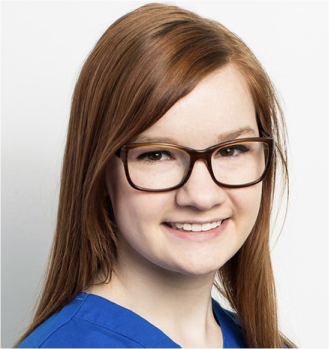
CASSIE VAN HOOF ’19
Innovation Driving the Dream
For Cassie Van Hoof, there was no question what she wanted to be when she grew up.
“Ever since I was little, I’ve always wanted to practice medicine,” said Van Hoof. “I wanted to do pediatric surgery. I wanted to do tonsillectomies. When I was 10 I had a tonsillectomy. I knew all the procedures and everything. Mom told me not to look it up. But I did and I learned all about it. So, yes, it’s always been medicine.”
By the time she had reached high school, the dream was still there, albeit in a slightly edited form – she wanted to be a veterinarian. “I definitely like being the voice for animals,” said Van Hoof. “It takes a lot to understand what they need from you and relaying to owners what they need.”
Her dream of becoming a veterinarian stayed with her throughout her undergraduate studies at UW-Parkside, and that dream was fueled by her innovative drive.
Van Hoof excelled at Parkside in several ways – in 2019 she was named WiSys Innovator of the Year, becoming only the second undergraduate to win the award and one of the only female awardees.
Van Hoof received the award for her development of a product that helps reduce anxiety in pets. With the help of WiSys, she created Purrfect Pal and Ruff Day, which are currently available as sprays to help ease cats’ and dogs’ tension.
Van Hoof has also filed a U.S. Patent for two formulas and founded Efoxen, LLC, to market her product. She also was the recipient of a 2019 IDEADVANCE grant award. The program aims to empower new and experienced entrepreneurs and focuses on getting them “out of the building” to learn about their customers and businesses.
“It’s essentially an innovation and business model,” said Van Hoof. “After developing the formula, I needed to figure out how to market it and provide the most effective way to sell the product, and the grant helps you do that.”
After interviewing several individuals, including pet store owners and pet owners, Van Hoof presented to the IDEADVANCE board and showed how her assumptions and business models changed based on her research.
Van Hoof is now studying at the Michigan State University College of Veterinary Medicine, fulfilling her dream of becoming a veterinarian. It’s clear her innovation skills and talents helped make that happen, and the opportunities at UW-Parkside provided an added boost.
“Parkside is often a school that gets written off,” said Van Hoof. “But I looked up the stats, and there was a very high number Parkside undergrads placed into vet schools. It’s definitely a great school to get ‘hands on’ experience.”
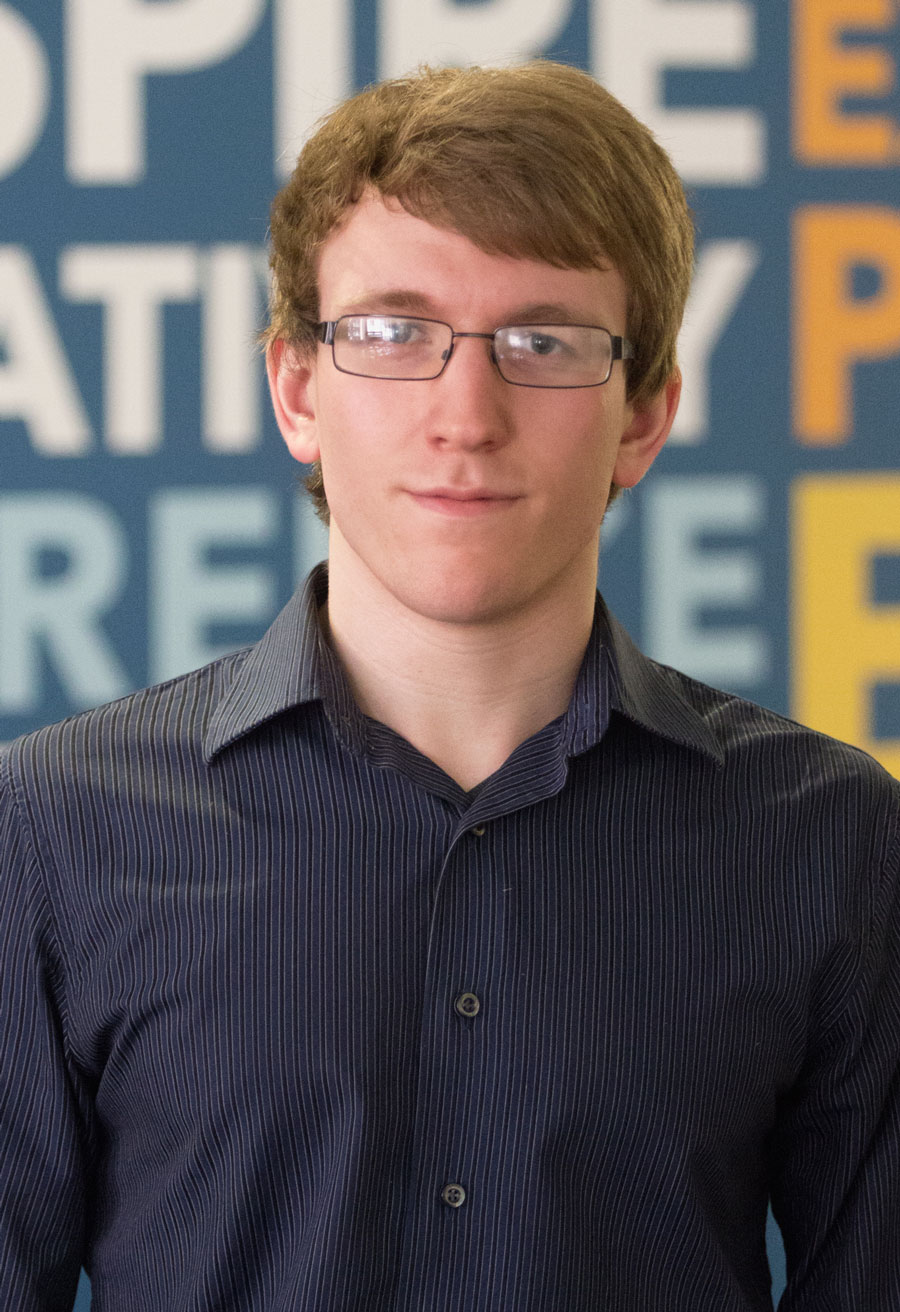
KYLE ZAWACKI ’17
Innovative Spirit Through Experience
As a definition, “innovator” isn’t something Kyle Zawacki always attributed to his personality.
But he definitely thinks it’s something that he has become, thanks in large part to his time at UW-Parkside.
Currently one of the engineering managers of mobile development at Bradfields, an e-commerce company in Chicago, Zawacki cut his innovator teeth while helping found the App Factory in 2015.
“I think most people have an innovative spirit in them, and it just develops over time,” said Zawacki. “I was a much different person before the App Factory, but I think I became an innovator during my time there.”
Like many students at Parkside, Zawacki said the hands-on experiences during his time on campus really helped bring out his talents and creativity. “The projects at the Factory were all mostly student-led; we were doing all the designing, all the coding,” he said.
Not to mention problem solving, an important skill students need to develop. “An innovator is someone more entrepreneurial, maybe somewhat frustrated with things, or maybe there’s a problem you see that you just want to solve,” said Zawacki.
In the world of software engineering, he added, that comes in handy. “You have to figure things out on the spot, he said. It was kind of good prep for that – I’m still doing that today. When I graduated, I actually had a job lined up and ready day one,” said Zawacki.
For those incoming Parkside students, Zawacki’s advice is to stay involved – even if you don’t call yourself an innovator at first. “Even if your classes seem mundane, you have to give it your all,” said Zawacki. “The act of being an active listener and engaging and trying in all your classes will make you a better person in general.”